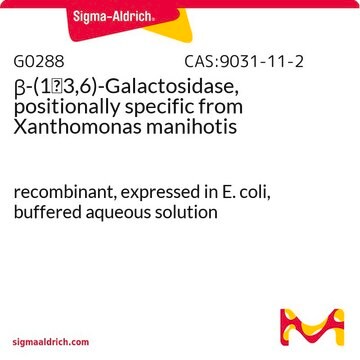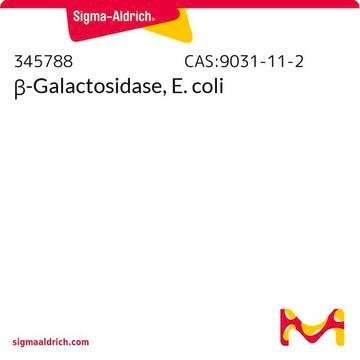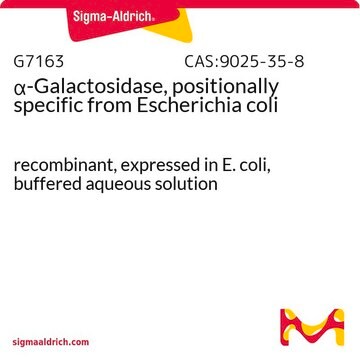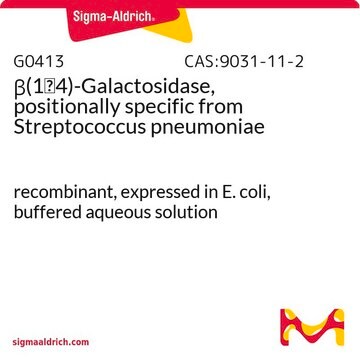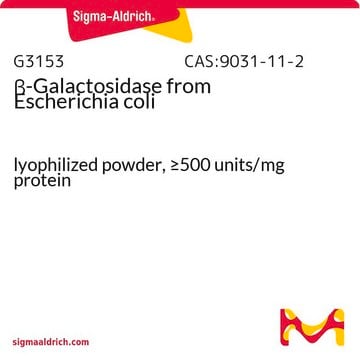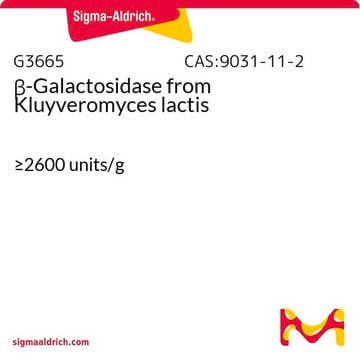G1288
β-(1→3,4,6)-Galactosidase, positionally specific
recombinant, expressed in E. coli, buffered aqueous solution
About This Item
Recommended Products
recombinant
expressed in E. coli
Quality Level
form
buffered aqueous solution
specific activity
≥70 units/mg protein
packaging
vial of 0.24 unit
shipped in
wet ice
storage temp.
2-8°C
Biochem/physiol Actions
Unit Definition
Physical form
Preparation Note
Storage Class Code
10 - Combustible liquids
Flash Point(F)
Not applicable
Flash Point(C)
Not applicable
Regulatory Listings
Regulatory Listings are mainly provided for chemical products. Only limited information can be provided here for non-chemical products. No entry means none of the components are listed. It is the user’s obligation to ensure the safe and legal use of the product.
JAN Code
G1288-BULK:
G1288-1VL:
G1288-1VL-PW:
G1288-VAR:
Choose from one of the most recent versions:
Already Own This Product?
Find documentation for the products that you have recently purchased in the Document Library.
Customers Also Viewed
Our team of scientists has experience in all areas of research including Life Science, Material Science, Chemical Synthesis, Chromatography, Analytical and many others.
Contact Technical Service


